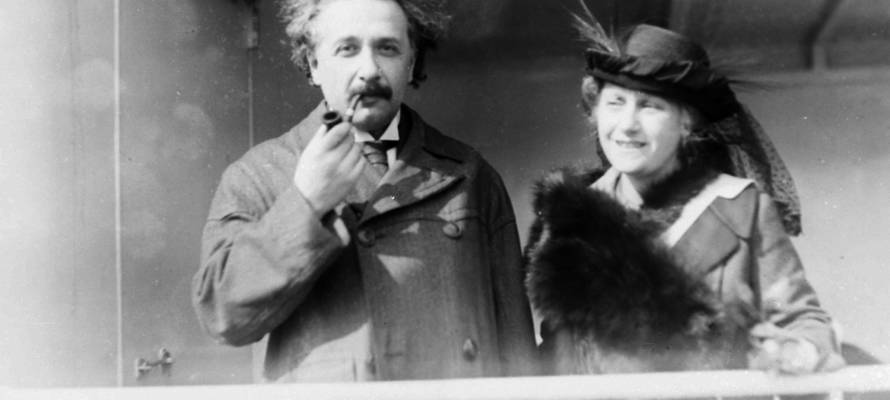Einstein’s letter will be auctioned in Los Angeles with an initial $20,000 bid.
By Shula Rosen, United with Israel
A 1939 letter Nobel Prize-winning Jewish scientist Albert Einstein wrote advocating for the rescue of Jews from Europe will be auctioned in Los Angeles with an initial 20,000 bid.
The letter, written on Einstein’s personal Princeton stationary, is addressed to Miss Sadye Klein of New York’s Department of Welfare Veteran Relief Division.
“The power of resistance which has enabled the Jewish people to survive for thousands of years has been to a large extent on traditions of mutual helpfulness,” wrote the Nobel laureate. “In these years of affliction, our readiness to help one another is being put to an especially severe test. May we stand this test as well as did our fathers before us.”
He continued, “We have no other means of self-defense than our solidarity, and the knowledge that the cause for which we are suffering is a momentous and sacred one.”
Einstein concluded, “It must be a source of deep gratification to you to be making so important a contribution toward rescuing our persecuted fellow-Jews from their calamitous peril and leading them toward a better future.”
Einstein wrote similar letters to influential American Jews, including Hollywood talent agent William Morris, department store chain owner Arnold Constable and Co and expressed his views at Jewish-Palestine pavilion at the World’s Fair.
Nate D. Sanders Auctions is auctioning the letter with a starting bid of $20,000. A similar letter was auctioned five years ago for $135,000.
Albert Einstein was a German-Jewish physicist who emigrated to the United States in 1933.
He is well known for his theory of relativity and was on the faculty of Princeton University, although due to anti-Jewish quotas, there were very few Jewish faculty or students at the time.
Notes Einstein wrote fetched $1.3 million at a Jerusalem auction, including his “happiness theory” memo.
The first note says, “A calm and modest life brings more happiness than the pursuit of success, which is combined with constant restlessness.”
The second note simply says: “Where there’s a will, there’s a way.”
According to one account, Einstein gave these notes to a messenger in Japan who refused a monetary tip.
